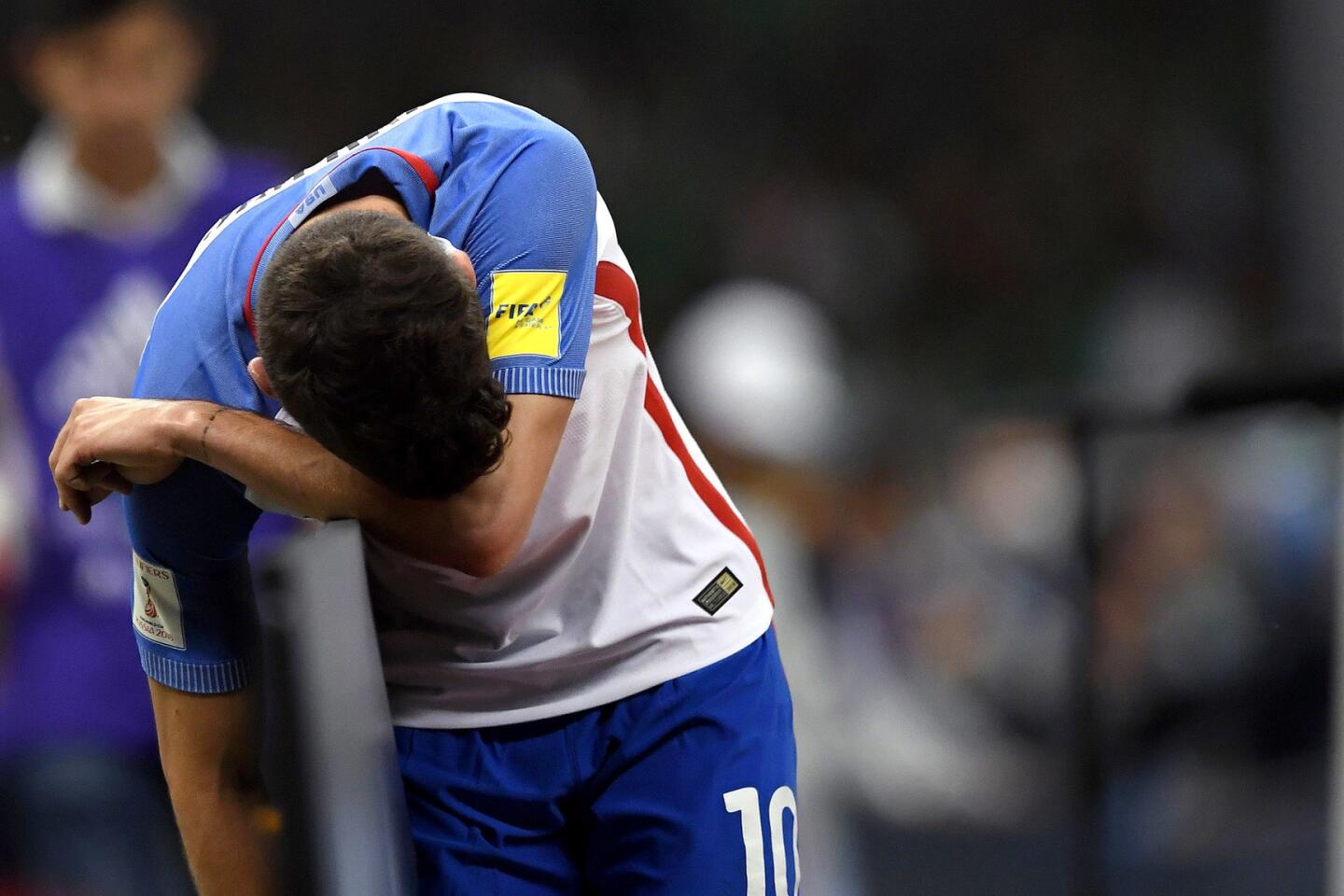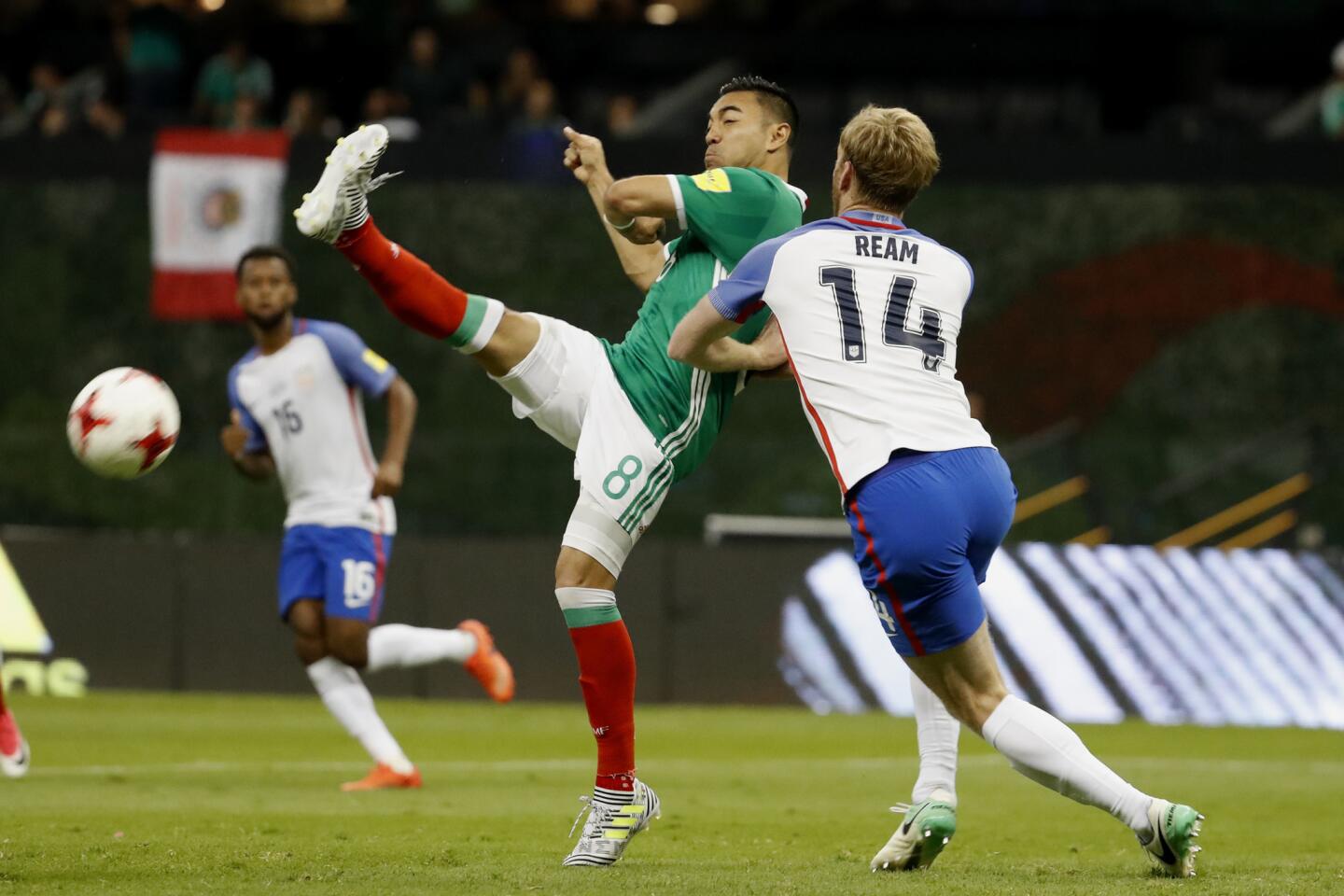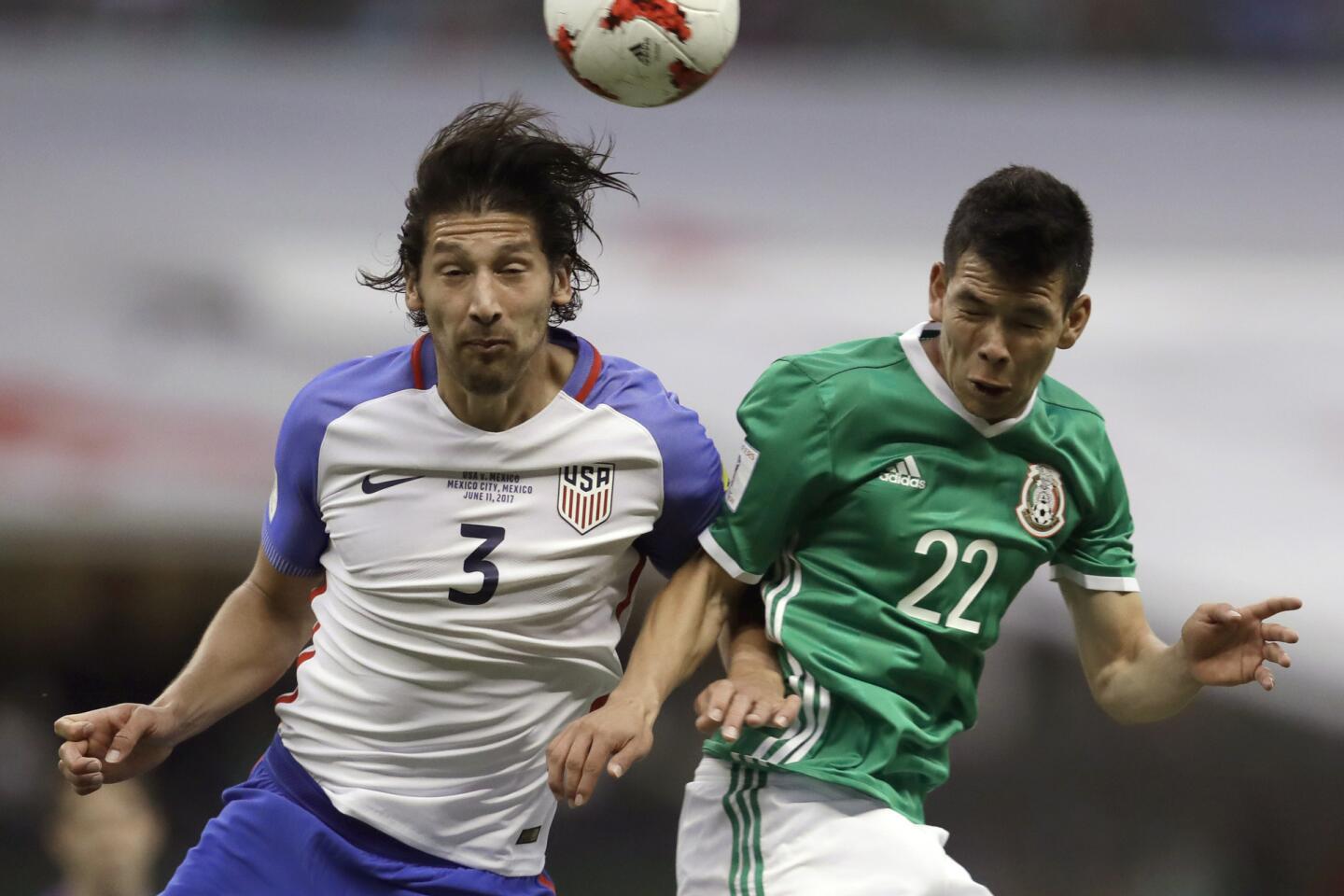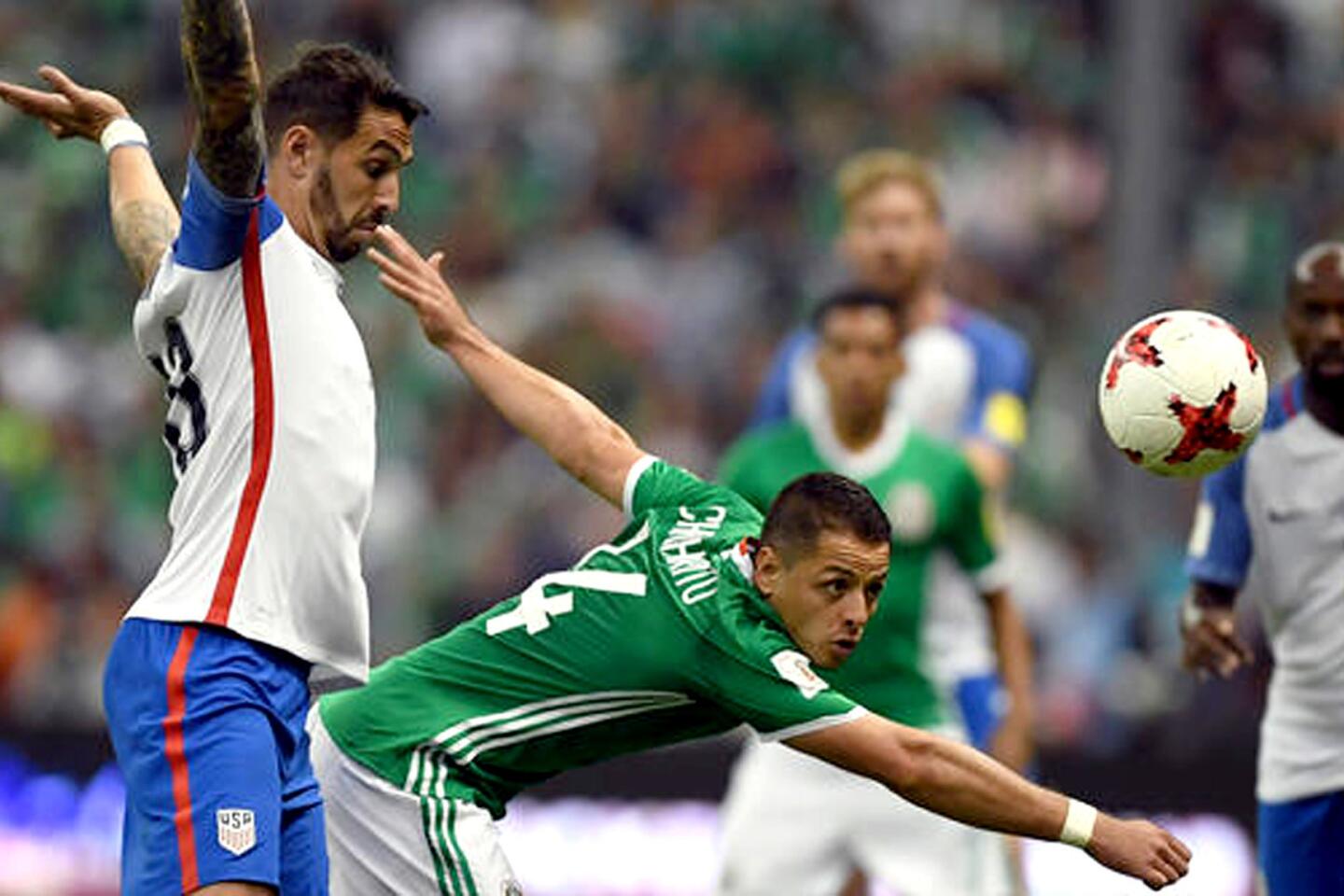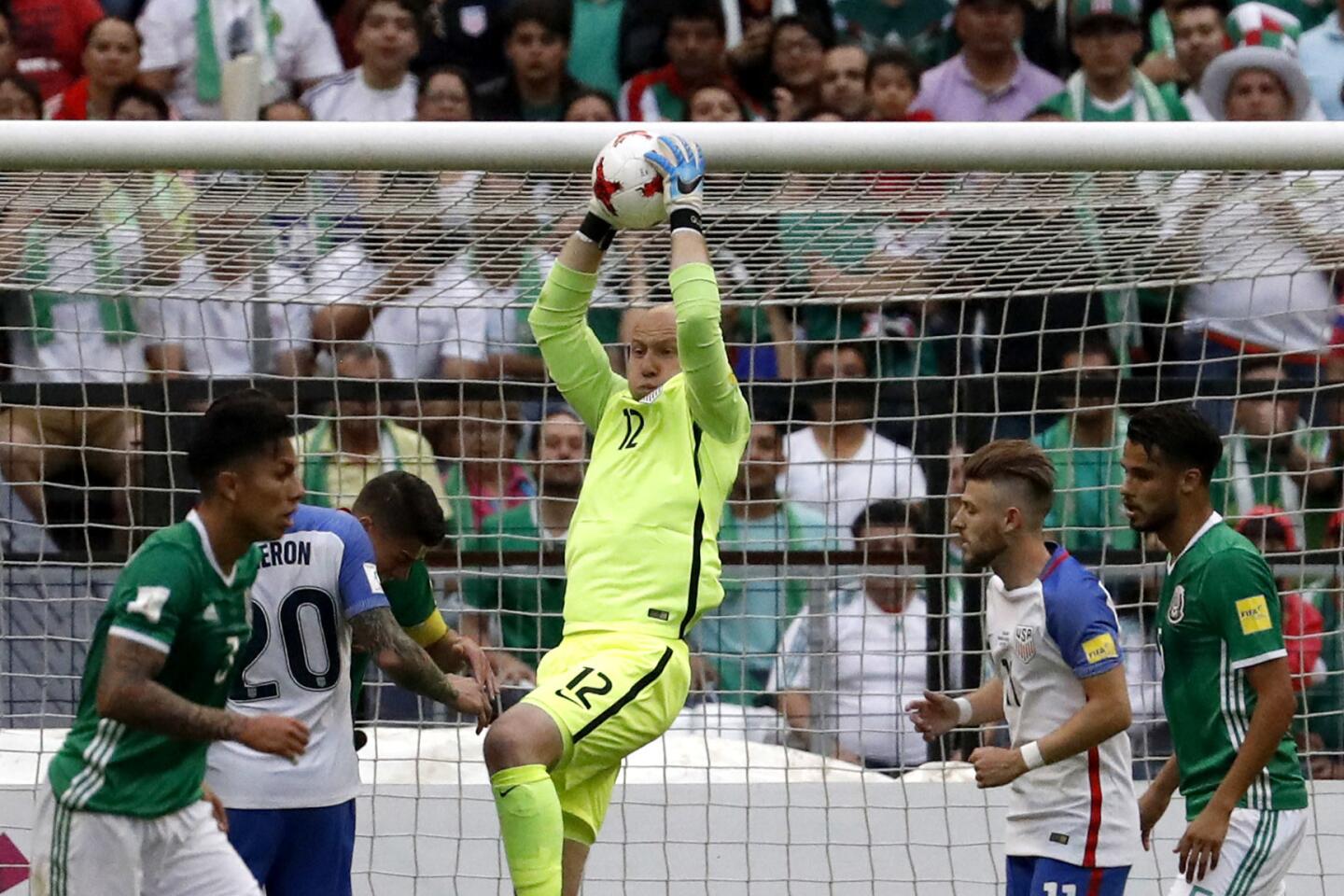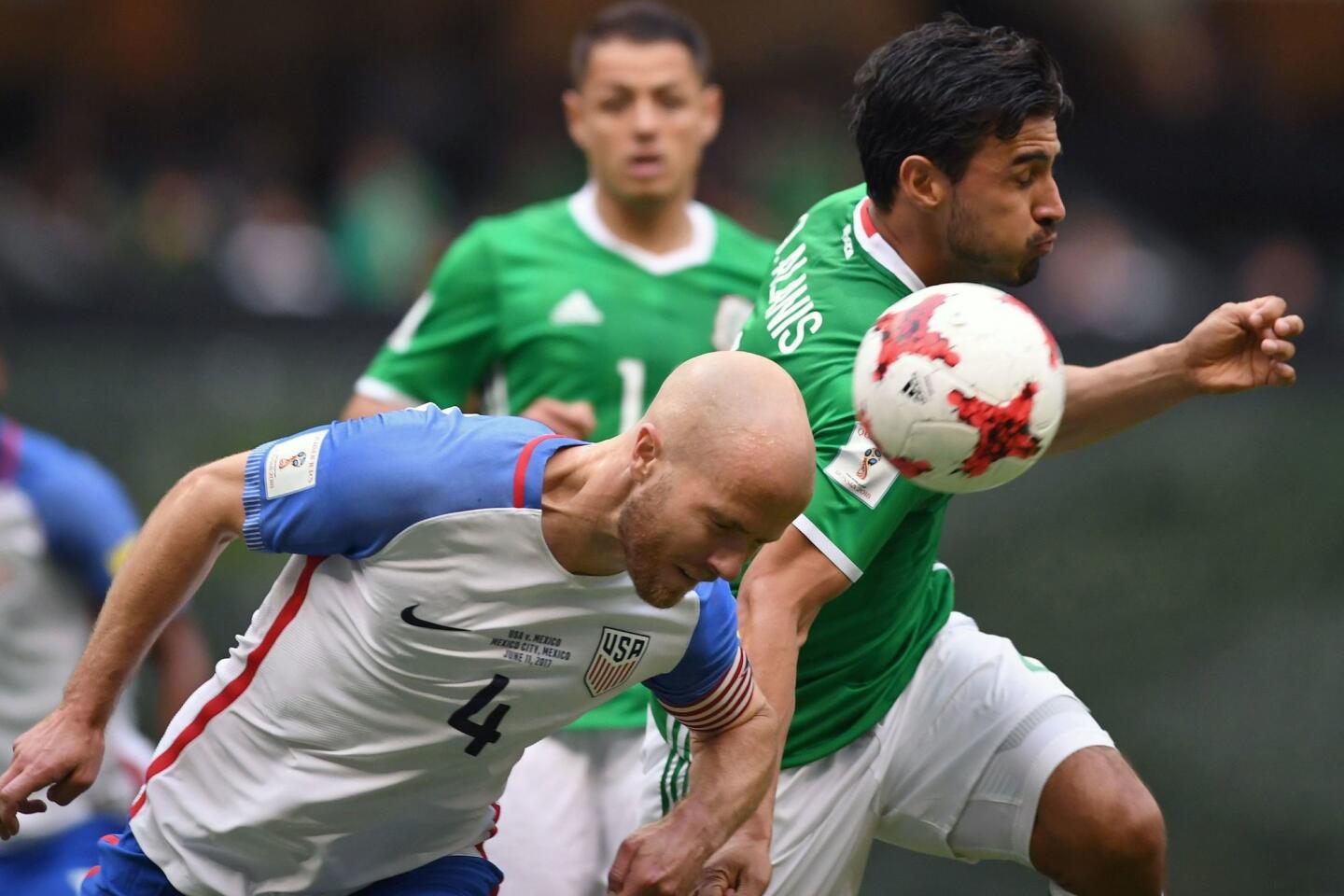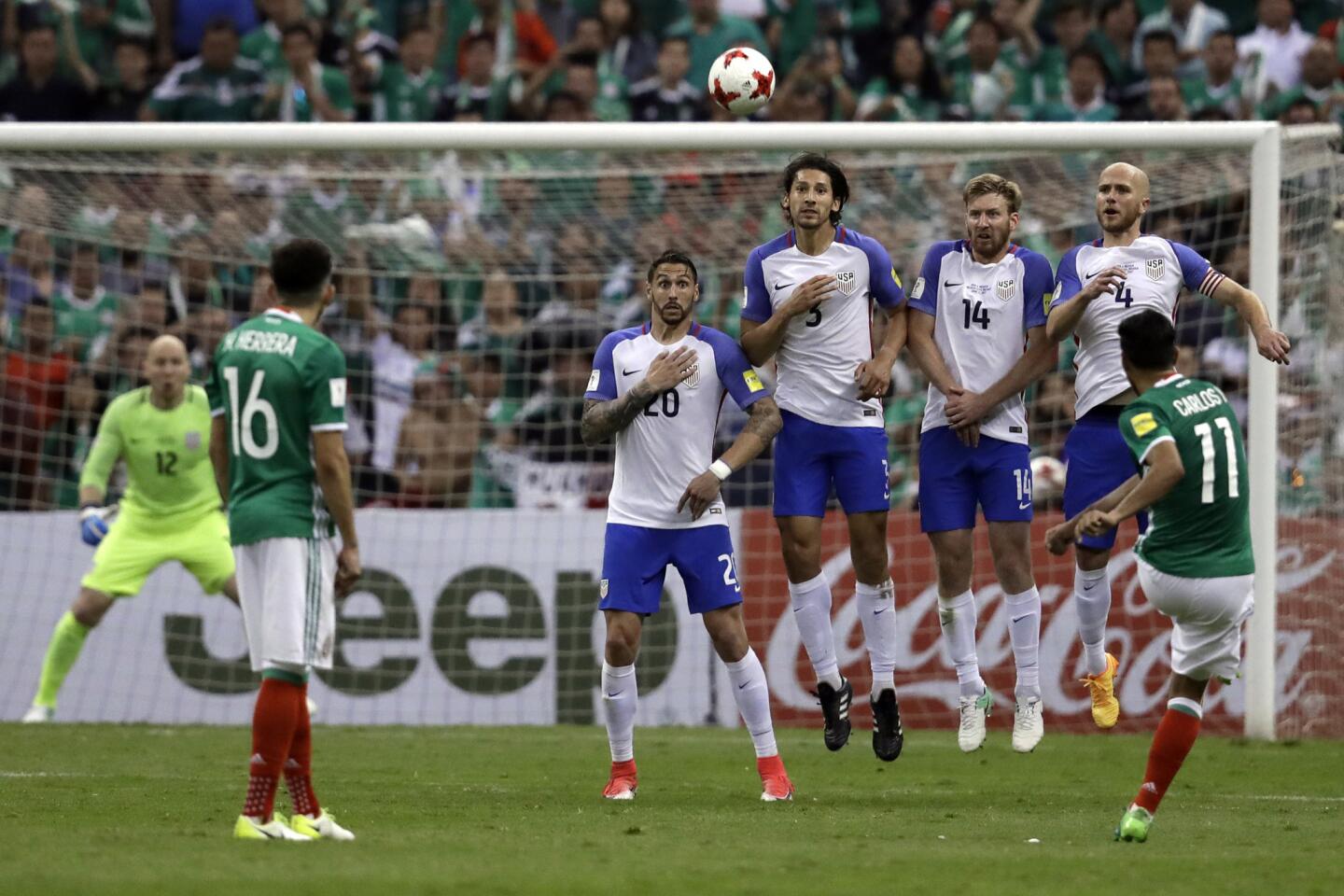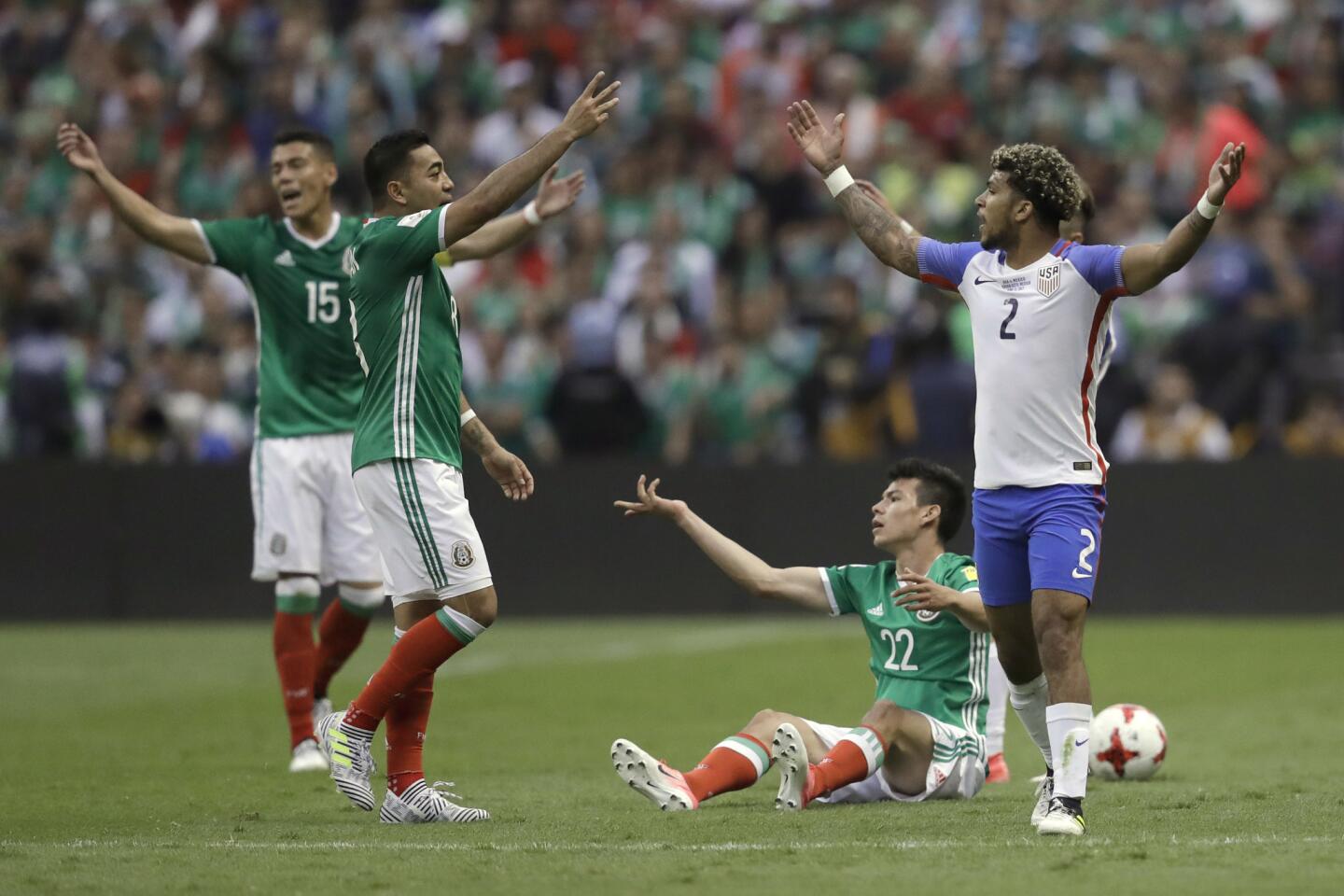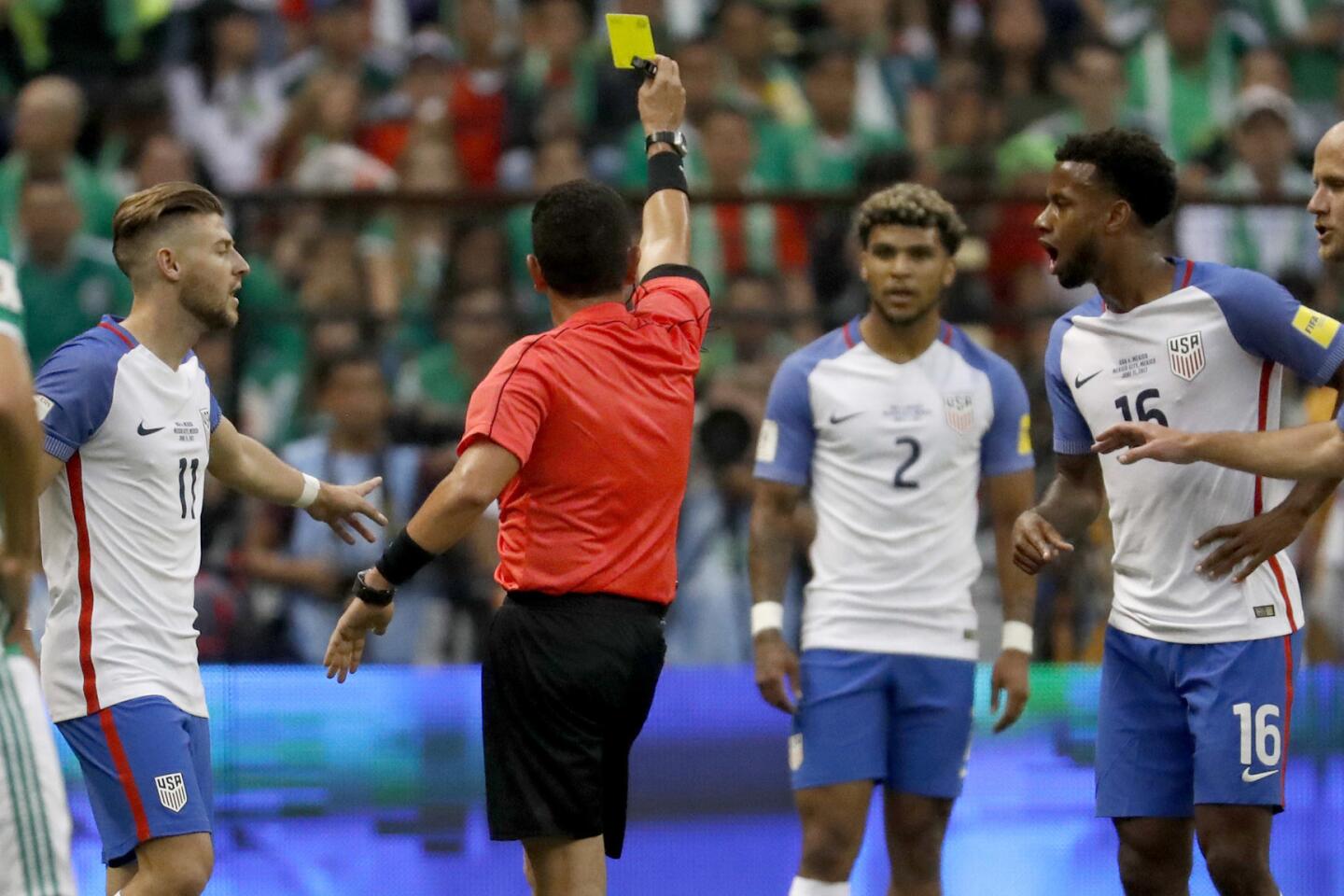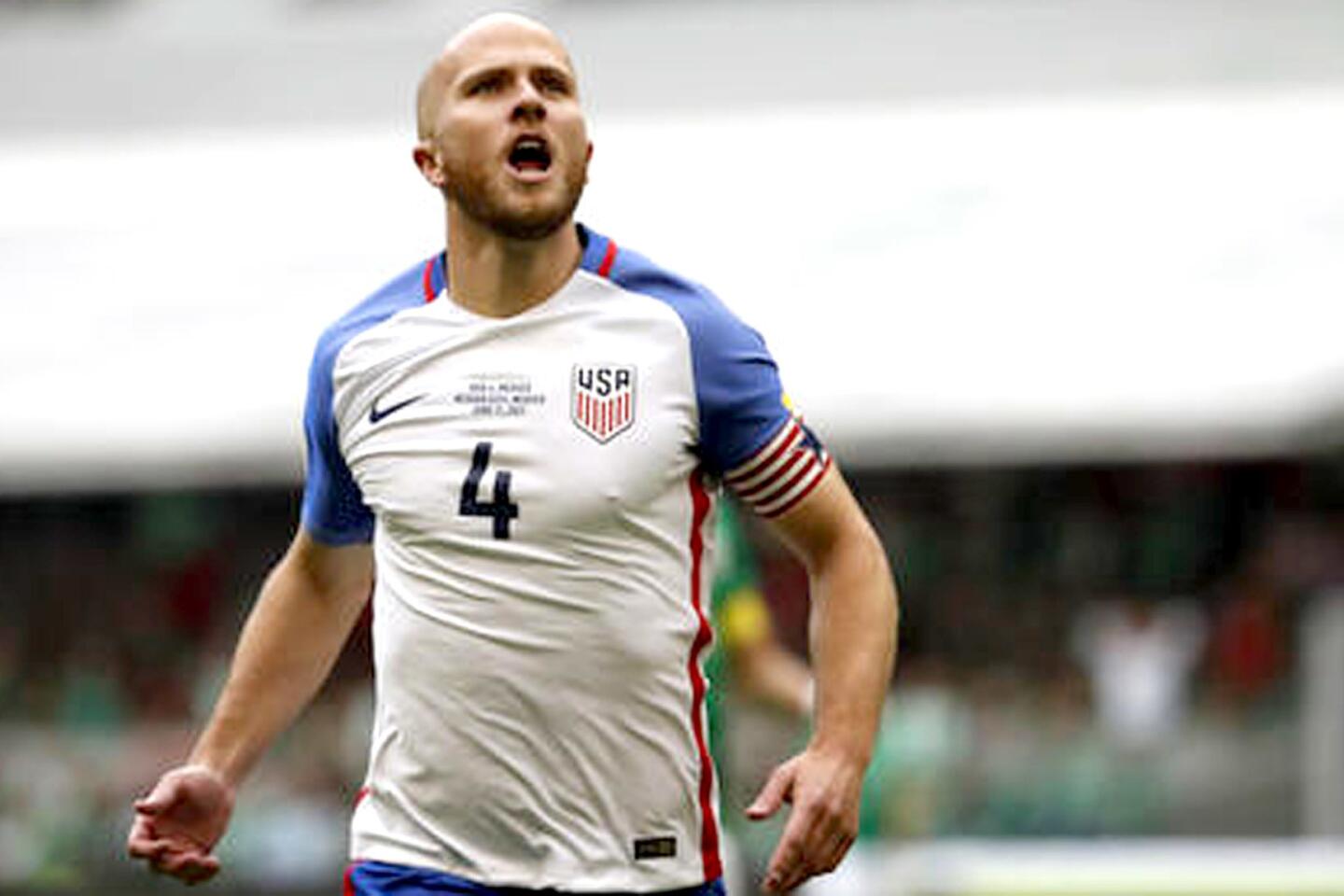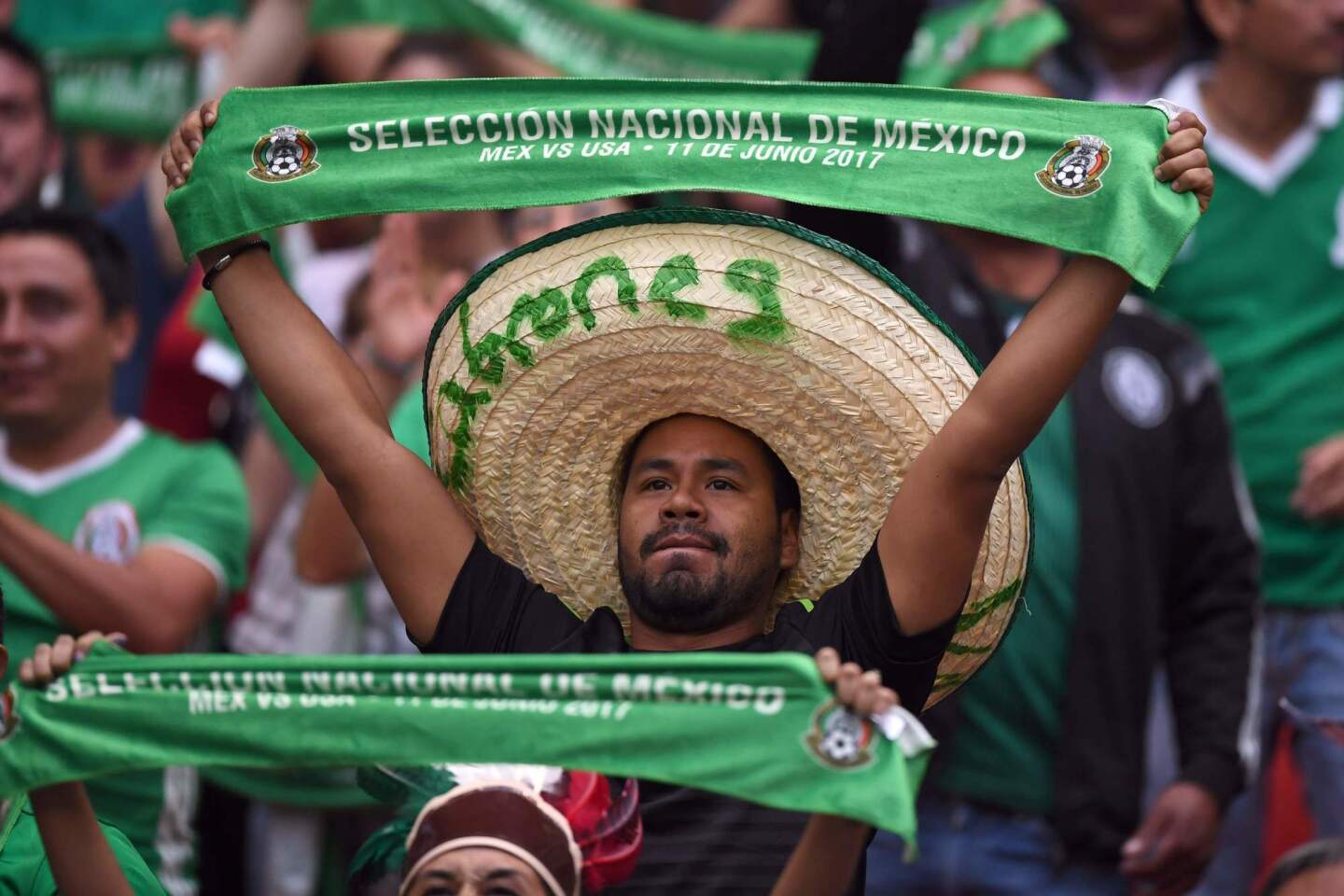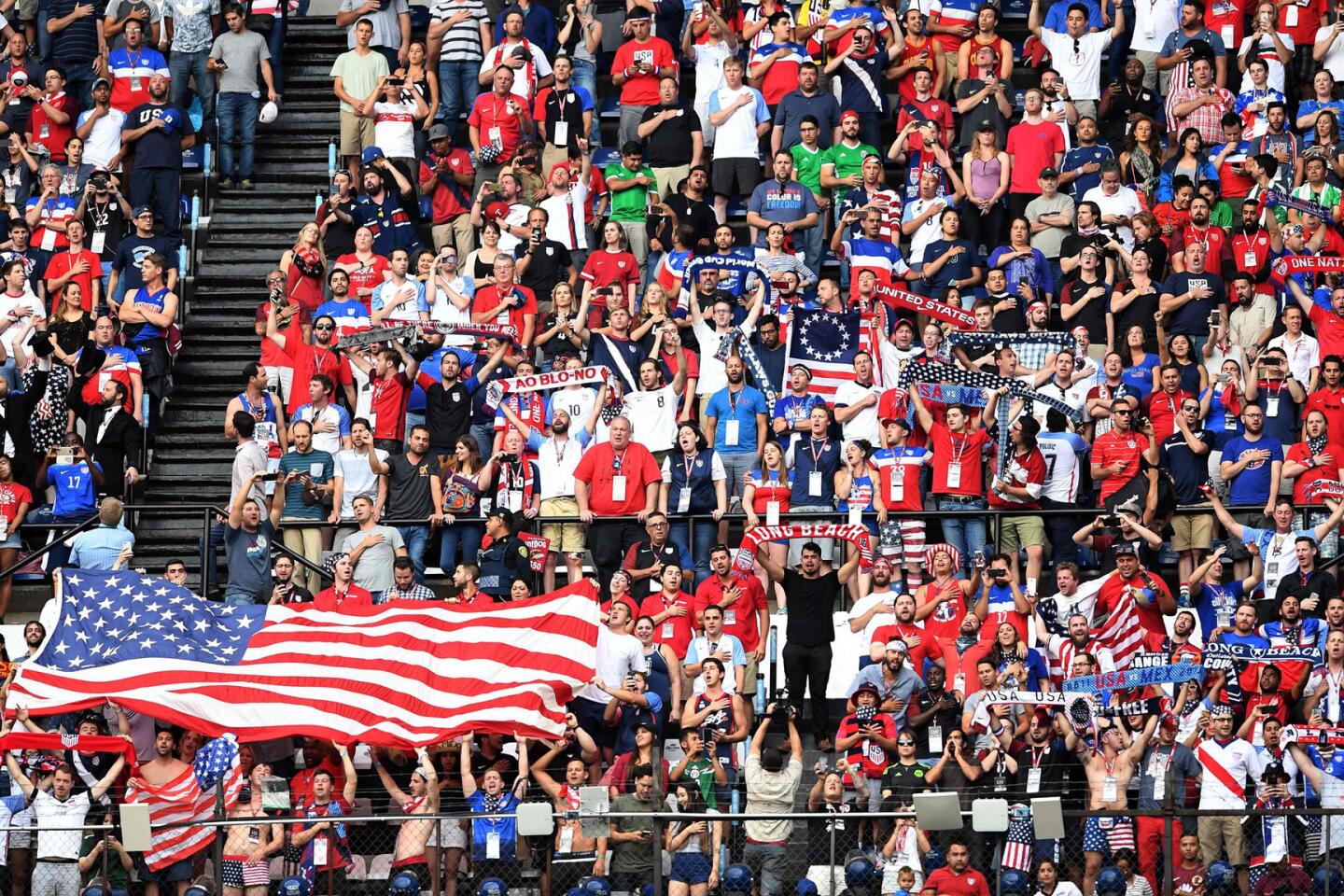Column: With powerful foes ahead, U.S. needs to step up its attack

Sunday was a big day in the world of Sports. (June 12, 2017)
- Share via
Reporting from Mexico City — Christian Pulisic can’t play alone.
The 18-year-old is already the best player the United States has ever produced, but he isn’t the kind of attacker who will slalom through an entire defense on his own. There was only one Diego Maradona.
Pulisic’s minimal influence in the U.S.’ 1-1 draw with Mexico at Estadio Azteca was somewhat predictable, considering the conscious decision the Americans made to send players back instead of forward.
As much as his ability to take on defenders one on one makes him different from other American players, what really separates him is that he is always a step or two ahead of everyone else mentally. He knows when and where to deliver the ball to his teammates, how to position himself to receive it back, how to time his runs. He makes the players around him better. He allows them to make him better.
Sunday night, he didn’t have anyone around him.
This is what Bruce Arena has to address in the 12 months that remain until the World Cup in Russia. The coach has to bridge the enormous chasm between how his team attacks when playing regional weaklings and upper-echelon teams such as Mexico.
Arena’s postgame remarks Sunday indicated his team didn’t play as defensively as it did by design.
“We played 90 minutes to win,” he said. “We didn’t play 90 minutes not to lose.”
Arena excused his team’s lack of offense — the U.S. goal was a once-in-a-lifetime chip shot by Michael Bradley from 40 yards out — by pointing to Mexico’s strength, as well as the imposing environment at the Azteca. But the Americans will be playing other teams of Mexico’s caliber at the World Cup. They will be playing in Russia, presumably in front of some crowds that will be against them.
Arena has played Pulisic at the top of a diamond midfield when playing weaker teams at home. Under that system, Pulisic not only had two forwards in front of him, but also the offensively capable Darlington Nagbe by his side. Pulisic has flourished in that No. 10 role. The players around him have too.
On the road, Arena has employed a more conservative approach, playing two defensive midfielders instead of one. That was what he did in Panama three months earlier. That was also what he did Sunday.
The alignment forces Pulisic wide, which isolates him from his teammates by varying degrees. He at least had two forwards in front of him in Panama. He had only one in Mexico.
The U.S. defense looked shaky under former coach Juergen Klinsmann and has continued to do so under Arena. Mexico has the region’s best attack, and Arena wasn’t about to take any chances.
The Americans went with a flat five-man back line, with DeAndre Yedlin on the extreme right, DaMarcus Beasley on the left, and Geoff Cameron, Tim Ream and Omar Gonzalez in the middle. The two holding midfielders, Bradley and Kellyn Acosta, were directly in front of them.
Attacking midfielders Pulisic and Paul Arriola were supposed to provide support for lone striker Bobby Wood, but that plan lasted about a half-hour. Mexico Coach Juan Carlos Osorio replaced his starting left back, Oswaldo Alanis, with Jesus Gallardo. The attacking-minded Gallardo started making overlapping runs out of the back, forcing Arriola to backtrack.
The U.S. formation shifted into a 5-3-1-1. Wood and Pulisic were on islands. The majority of the balls sent their way were in the air, which didn’t play to their strengths. On the rare occasions they had the ball at their feet, they didn’t have any nearby passing options.
“Their intention was to defend with five, with three midfielders in front of them and wait for an error, or an opportunity in transition, which is what happened,” Osorio said in Spanish.
The strategy did what it was supposed to, which was to steal a point at Azteca. The result further validated the U.S. federation’s decision to replace Klinsmann with Arena over the winter, as Arena’s resourcefulness secured a point that would have certainly been lost under his tactically inept predecessor. And at this stage, Arena’s only concern should be to accumulate points. There are no style points in World Cup qualifying. All that matters is reaching the tournament.
However, once the Americans have secured a place in Russia, they should strive for more.
What the U.S. is doing now, it was doing 15 years ago, in Arena’s first World Cup. The 2002 team was organized. It was opportunistic and punished opponents for their mistakes.
The Americans now have a world-class attacking midfielder in Pulisic. They have the talent to play more attractively and proactively than any U.S. team before them. They can create their own chances, as opposed to waiting and seeing what their opponents give them. They’re ready to take the next step forward. Arena has to get them there.
More to Read
Go beyond the scoreboard
Get the latest on L.A.'s teams in the daily Sports Report newsletter.
You may occasionally receive promotional content from the Los Angeles Times.

